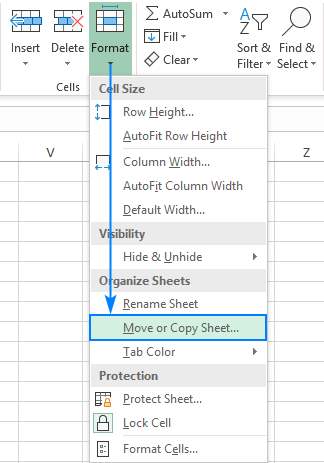Can Urgent Care Doctors Handle Your FMLA Paperwork?

FMLA, or the Family and Medical Leave Act, allows eligible employees to take unpaid, job-protected leave for specified family and medical reasons. This includes time off for serious health conditions, caring for a family member, or after the birth or adoption of a child. When medical issues arise, employees often wonder if urgent care physicians can help with the necessary FMLA paperwork. The answer is multifaceted, and here, we'll delve into when and how urgent care can assist in these scenarios.
Understanding FMLA Requirements

Before exploring the role of urgent care in FMLA documentation, let’s first understand what is required for FMLA leave:
- Eligibility: Employees must have worked for their employer for at least 12 months, have at least 1,250 hours of service in the 12 months before the leave, and work at a location where the company employs 50 or more employees within 75 miles.
- Medical Certification: When taking leave due to a medical condition, employees are often required to provide certification from a healthcare provider. This includes:
- Date the medical condition began.
- Probable duration of the condition.
- Medical facts and treatment.
- Expected return to work date.
- When leave is needed intermittently or on a reduced schedule, its impact on the employee’s ability to work.
Can Urgent Care Doctors Provide FMLA Documentation?

Urgent care centers, while not primarily focused on long-term care, can indeed play a role in helping with FMLA paperwork under certain circumstances:
- Acute Conditions: If the medical issue that prompts the need for FMLA leave can be treated or confirmed by an urgent care physician, they might provide initial documentation. This often includes issues like fractures, infections, or severe injuries.
- Referrals and Coordination: If the condition requires further treatment or is beyond the scope of urgent care, these doctors can refer you to specialists, providing a starting point for medical certification.
- Existing Relationships: For those with established urgent care relationships, doctors might be more willing to help with paperwork, especially if they’re familiar with your health history.
Limitations of Urgent Care in FMLA Assistance

There are limitations to how much an urgent care facility can help with FMLA documentation:
- Scope of Practice: Urgent care physicians are not always equipped to manage ongoing, chronic conditions. FMLA often pertains to longer-term health issues that might require a specialist’s insight.
- Documentation Detail: FMLA forms require detailed and often complex medical documentation which might exceed the capabilities or focus of urgent care.
- Familiarity with Case: A doctor who knows your medical history will be better suited to provide thorough and accurate documentation for FMLA than an urgent care provider you’re meeting for the first time.
When to Visit Urgent Care for FMLA Paperwork

Here are scenarios where visiting urgent care for FMLA documentation might be appropriate:
- Sudden Illness or Injury: If you’ve suffered an acute injury or illness that might qualify for FMLA, urgent care can document the incident and provide initial certification.
- When Other Options Are Unavailable: If your primary care physician is unavailable or you don’t have one, urgent care can serve as a temporary solution.
- Need for Quick Certification: In situations where time is of the essence, urgent care can be quicker than scheduling an appointment with a specialist.
⚠️ Note: Urgent care might not provide the comprehensive medical certification necessary for all FMLA applications. Always consider the complexity of your condition and the scope of care provided by urgent care centers.
What If Urgent Care Isn’t Sufficient?

If urgent care cannot provide all necessary documentation or if your condition requires more in-depth care, consider these steps:
- Consult Your Primary Care Physician: They have your medical history and can provide detailed documentation.
- Seek a Specialist: For chronic or complex health issues, a specialist’s certification might be required.
- Obtain Additional Documentation: Sometimes, you might need more than one healthcare provider’s certification, especially for intermittent leave.
The Role of Urgent Care in Chronic Conditions

For chronic conditions, urgent care’s role might be limited, but they can:
- Provide temporary certification for flare-ups or acute exacerbations.
- Refer you to appropriate specialists for ongoing care and documentation.
Finalizing FMLA Paperwork

The process of finalizing FMLA paperwork often involves:
- Completing Forms: FMLA forms are detailed and require specific information about your condition, its duration, and its impact on your ability to work.
- Coordination with Employers: You might need to provide your employer with periodic updates or recertification as required by FMLA regulations.
Reflections on the Role of Urgent Care

Urgent care centers serve as a crucial part of our healthcare system, offering timely care for non-life-threatening conditions. While their expertise is not in long-term medical certification, they can be a bridge to specialists or provide initial documentation for FMLA applications, particularly for acute conditions. Here are some key points to take away:
- Urgent care can assist with FMLA for sudden health issues or as a temporary solution.
- They have limitations in providing comprehensive medical certification for chronic conditions.
- Urgent care referrals can facilitate connections with specialists.
Can urgent care physicians complete any FMLA paperwork?

+
Urgent care physicians can provide initial documentation for acute conditions or temporary certification for chronic condition flare-ups. However, for chronic or complex conditions requiring ongoing treatment, they might not be able to provide the comprehensive documentation needed.
What if my urgent care doctor refuses to sign my FMLA paperwork?

+
If your urgent care physician refuses to sign your FMLA paperwork, they might not feel comfortable certifying your condition due to its complexity or lack of familiarity with your health history. In such cases, seek certification from your primary care physician or a specialist.
Is a specialist’s certification always necessary for FMLA?

+
Not always, but for chronic or complex conditions that require specialized treatment, a specialist’s certification is often more thorough and acceptable for FMLA leave applications.



